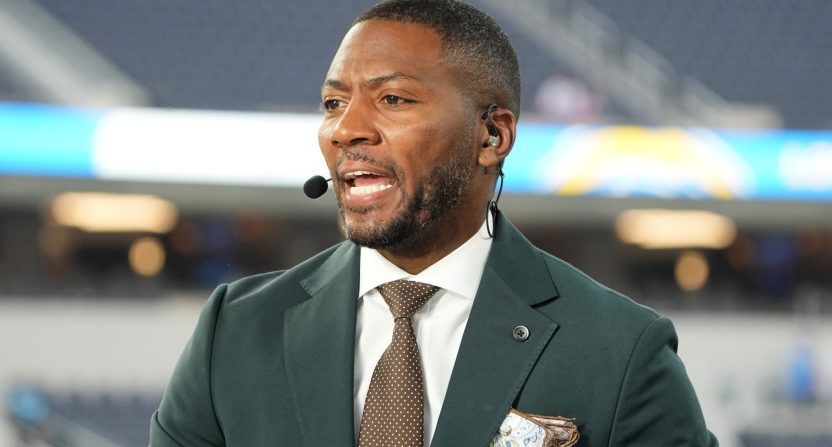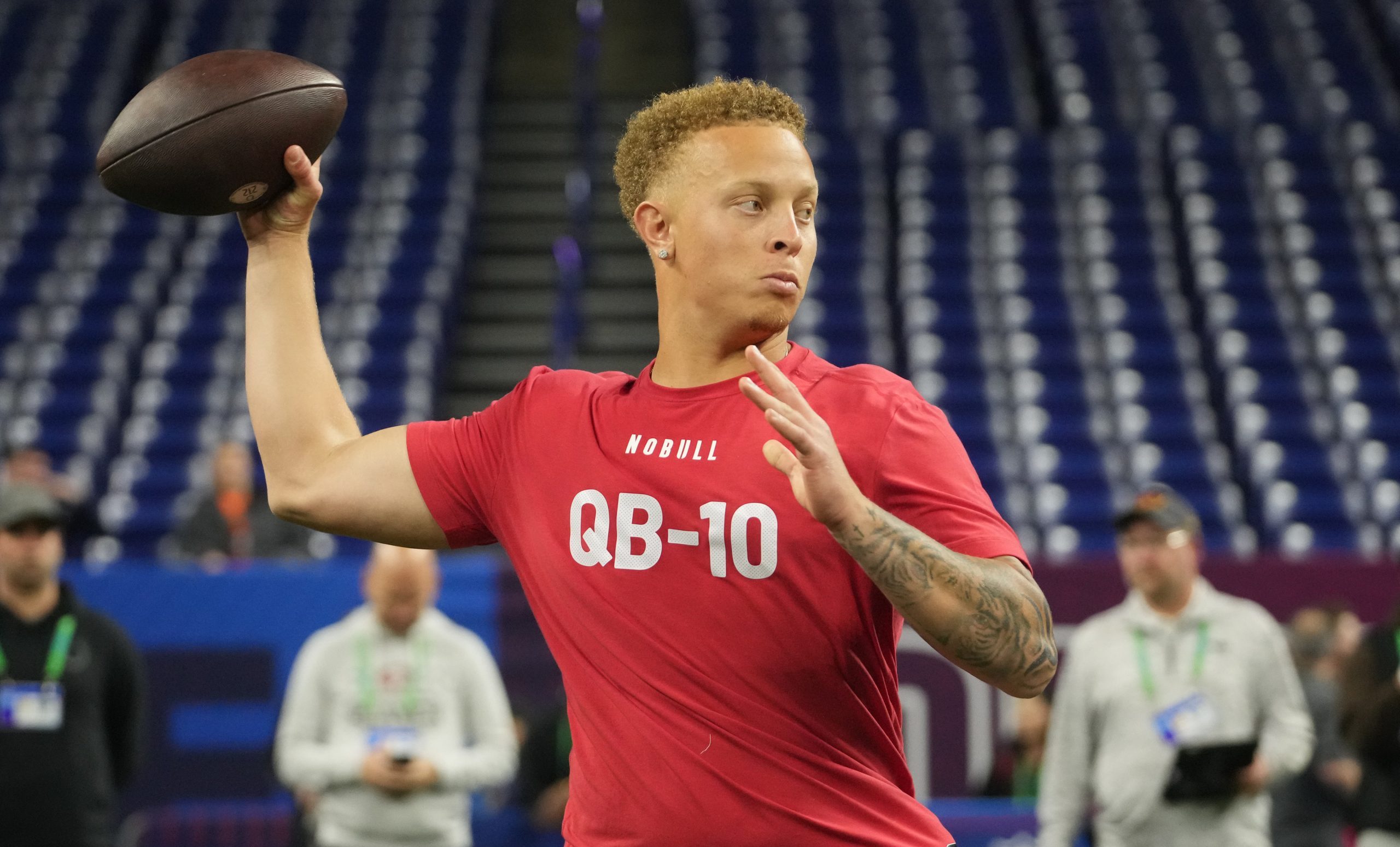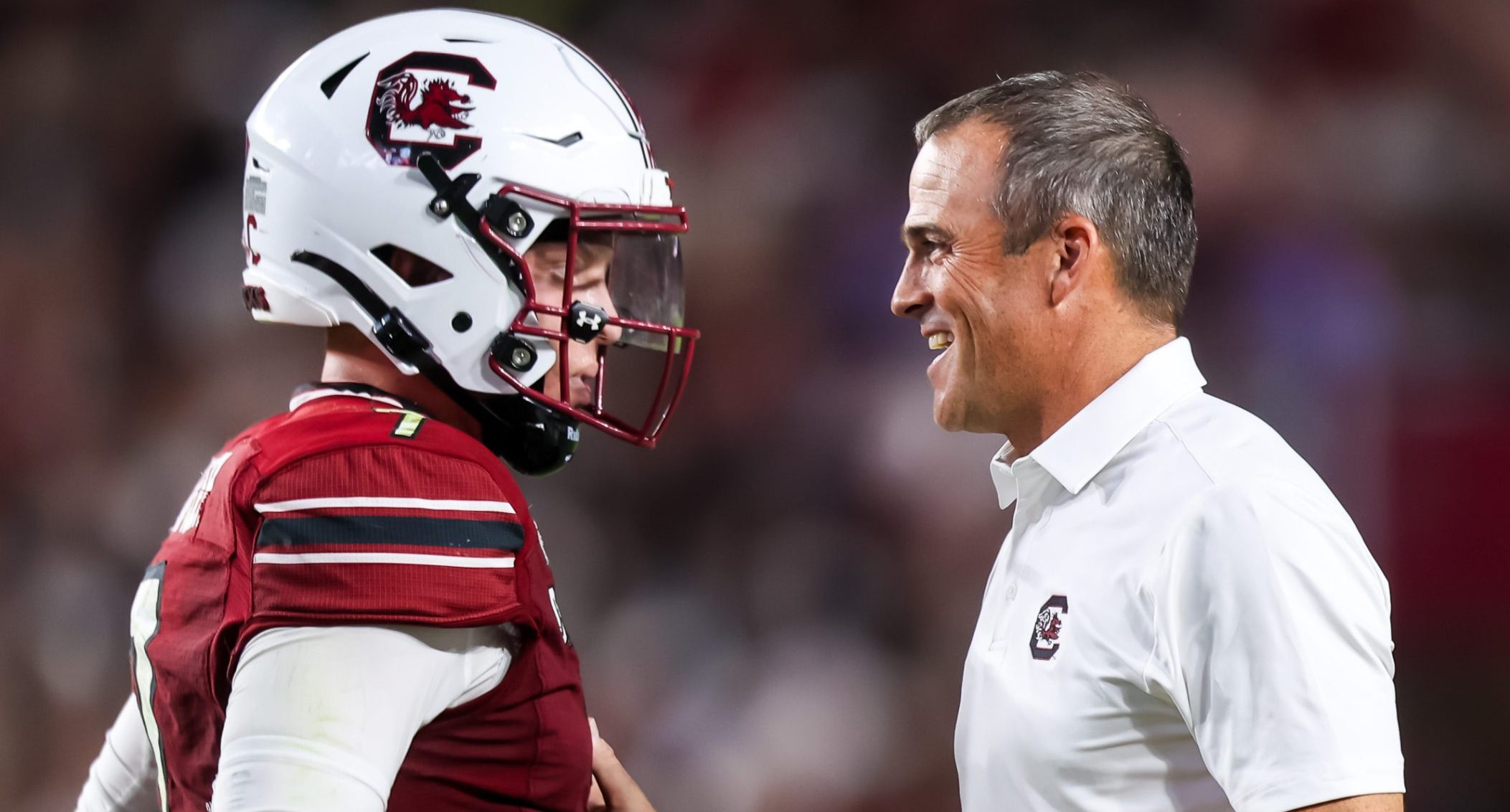I’m sitting here watching ESPN, and my typical morning routine was interrupted by the network’s airing of the MLB season opener between the Los Angeles Dodgers and San Diego Padres in Seoul, South Korea.
As soon as the game ended, the Worldwide Leader quickly transitioned into Get Up, with Ryan Clark serving as the show’s host and Chris “Mad Dog” Russo and Jessica Mendoza joining him to break down the Dodgers’ 5-2 win. Following a lengthy discussion regarding the MLB opener, Clark pivoted — no pun intended — into a discussion with NFL reporter Kimberley A. Martin and analyst Dan Orlovsky regarding the New York Jets signing wide receiver Mike Williams. From there, the former NFL safety made another transition, this time breaking down Zion Williamson’s 28-point performance in the New Orleans Pelicans’ victory over the Brooklyn Nets with NBA analyst Tim Legler.
By the time the first half-hour of Get Up had come to a close, Clark had led discussions regarding baseball, football and basketball with no fewer than five different colleagues. He was also the person tasked with progressing the show from one segment to the next, setting the stakes for each topic, keeping the show on time and also reading ads.
I’m not sure the average viewer appreciates how hard all of that actually is.
Like many ex-athletes, Clark has found his post-playing career calling in the media. And of all the roles he’s shown he can play, I’d argue that he’s at his best as an analyst, allowing another host to drive the show so that he can focus on drawing from his playing experience while displaying his dazzling personality.
That’s no slight to Clark; most former players thrive as analysts, which makes sense considering that their on-field experiences is what makes them unique. But it’s also a credit to him that he’s been willing to pivot — OK, that pun was intended — and take on a different role like hosting, when it would have been easier (and still plenty lucrative) to just fill the ex-player-turned-analyst prototype.
Obviously, ESPN agrees.
After the 44-year-old publicly announced his free agency following the Super Bowl, the network quickly re-signed him at a reported $2 million salary. That’s hardly an insignificant figure, especially considering this year’s class of sports media free agents.
But it’s also not surprising that ESPN would prioritize retaining Clark, even if it meant allowing him to continue his work on The CW’s Inside the NFL and his own Pivot Podcast. If there’s one thing that the network has valued under the leadership of president Jimmy Pitaro, it’s versatility; pay fewer people more money to do more. It’s why you seemingly can’t turn on a major ESPN broadcast without Mike Greenberg, Stephen A. Smith, Scott Van Pelt or Pat McAfee being a part of it.
Clark might not be on that level just yet, but he’s not far off. And his reported salary certainly indicates that the LSU product is merely at the starting of whatever it is that ESPN envisions for him for the future.
As Peter King made the media rounds following his retirement last month, the sportswriting legend discussed the origins of his “Monday Morning Quarterback” column with The Dan Le Batard Show with Stugotz.
“I got asked, ‘Would you do this column on this new website we have?’ I didn’t even have an email address when I started this column… I said yes,” King said. “It’s one of the things I try to tell young journalists now. If somebody asks you to do something, you should say yes unless you absolutely cannot do it. And the reason is, you have no idea in five years, seven years, nine years, how stories will be told in journalism… you better be open to wanting to do different things.”
Somewhere along the way, Clark clearly learned the same lesson.
It’s one thing for a former player to host a podcast, but another to host a live television show. Just watch how often Molly Qerim — who also does an incredible job — gets frustrated with her First Take co-hosts for knocking the show off its clock. But watching Clark, you’d never know he’s not a classically trained broadcaster. And if anything, his ability to mix those skills with his expert analysis makes him a unicorn in the industry.
Surely, he isn’t the only analyst who’s been asked to handle hosting duties. But whether it’s his willingness to do so or the fact that he’s thrived when given the opportunity, Clark has clearly demonstrated an ability to be one of ESPN’s most versatile employees.
As his recent negotiations proved, that’s clearly something ESPN covets — perhaps more than anything else. And Clark has parlayed it into becoming one of the faces of the network for the foreseeable future.







